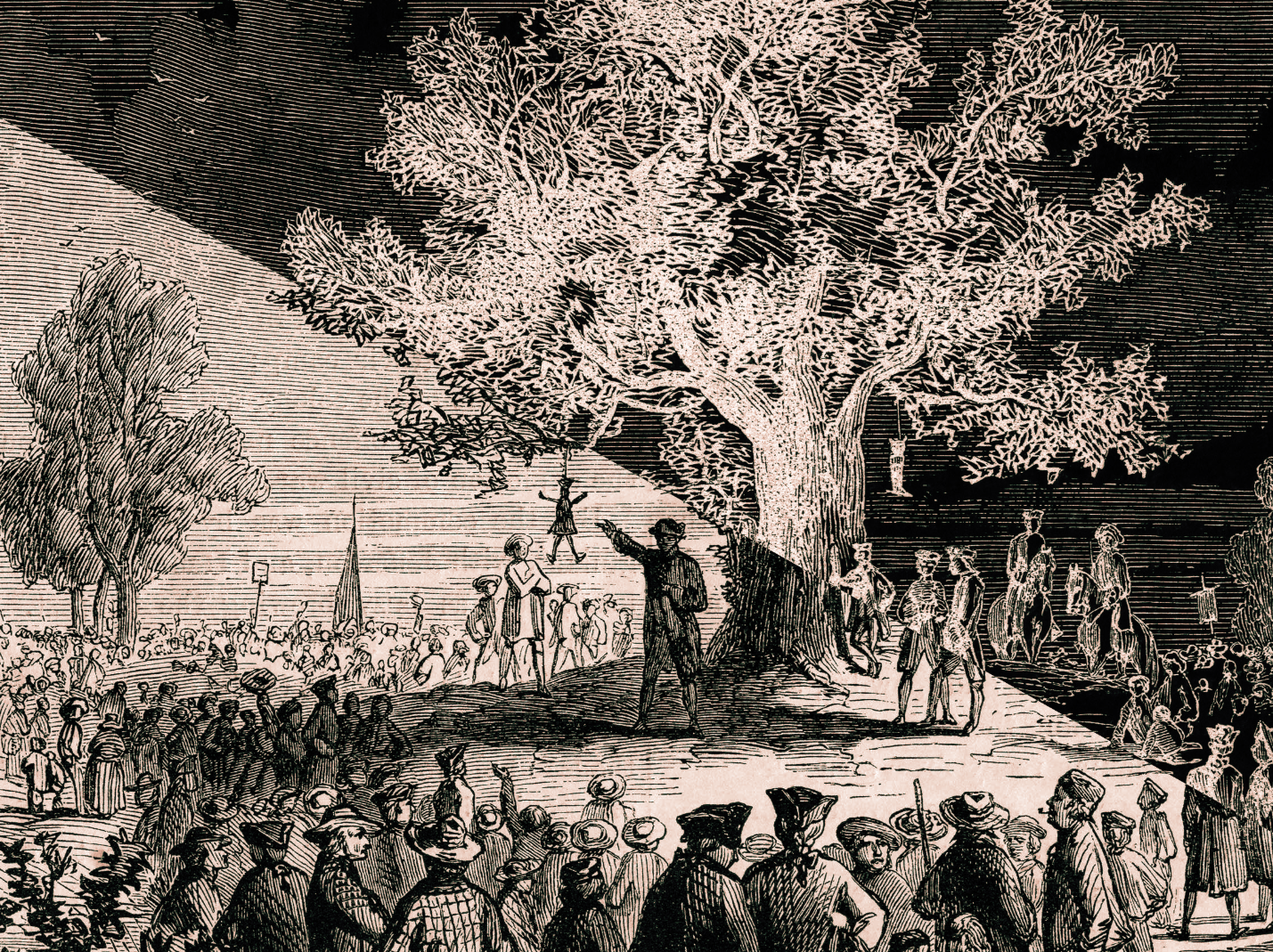
Parliament passed the Intolerable Acts, George III gave them his royal assent, and, at once, America rose in unanimous rebellion.
No, of course not.
American patriots were outraged. But in 1774, they weren’t yet at the point of armed rebellion. The radicals of Massachusetts, Samuel Adams and the Boston Committee of Correspondence, proposed instead a Solemn League and Covenant—an echo of oaths taken during the British Civil Wars a century earlier—to cease the importation of British goods and to boycott Americans who imported goods from Britain.
1st, That from henceforth we will suspend all commercial intercourse with the said island of Great Britain, until the said act for blocking up the said [Boston] harbour be repealed, and a restoration of our charter rights be obtained. And, 2dly, That there may be the less temptation to others to continue in the said, now dangerous commerce, we do in like manner solemnly covenant that we will not buy, purchase or consume, or suffer any person, by, for or under us to purchase or consume, in any manner whatever, any goods, wares or merchandize which shall arrive in America from Great Britain aforesaid, from and after the last day of August next ensuing … 3dly, That such persons may not have it in their power to impose upon us by any pretence whatever, we further agree to purchase no article of merchandize from them, or any of them, who shall not have signed this, or a similar covenant.
The point of this embargo was significant, not least because Britain maintained its colonies to provide a captive market for its exports; removing that market undermined much of the rationale for British rule.
And such a Covenant could not be imposed. It had to be agreed to—town by town, not even colony by colony, and it had to be agreed to in Boston first. Even in Boston, there was much opposition to such a measure, above all by the merchants, who would suffer most from such a boycotting Covenant. The Boston Committee of Correspondence drafted the Solemn Covenant on June 5. It was submitted to the Boston Town Meeting, but the crisis did not come until June 28. Then, a motion was made to censure and abolish the Boston Committee of Correspondence. That motion failed. And that meant that Boston would adopt the Solemn Covenant. From there, it would spread to other towns and Massachusetts—and help spark the First Continental Congress.
We made our Revolution by seeking to persuade our fellow Americans, town by town, that radical measures must be taken to defend our liberty. We weren’t unanimous for taking a step that would hurt our individual prosperity—revolutionary nations rarely are. But we took that step, with local government and law as the handmaidens of liberty. The way we made the Revolution was wonderfully, quintessentially American.
And now? It would be tempting to boycott every woke business in America. Alas, all the big businesses have gone woke. And they depend for their profits more on the woke gentry than on the people at large. Perhaps one day we will make such a boycott, but the moment has not yet come to covenant to eschew our Amazon deliveries until Amazon de-wokifies.
But we should see all the local movements for liberty, perhaps above all the state movements for liberty, as crucial jigsaw pieces of rebellion. Here an attorney general sues the federal government for yet another exercise in administrative tyranny, such as the arbitrary expansions of Title IX to gut due process and to cover “transgenderism.” There, a state legislature votes to ban “diversity, equity, and inclusion.” Here, a whistleblower reveals a hospital has committed perjury as it chops up children. There, a federal committee summons a college president to speak plainly about unrestrained campus mobs. We may wish for some larger and more immediate movement of liberty, but we build it with these jigsaw pieces. These are our town meetings to approve our Solemn Covenants.
And we are building toward our First Continental Congress.
Art by Beck & Stone